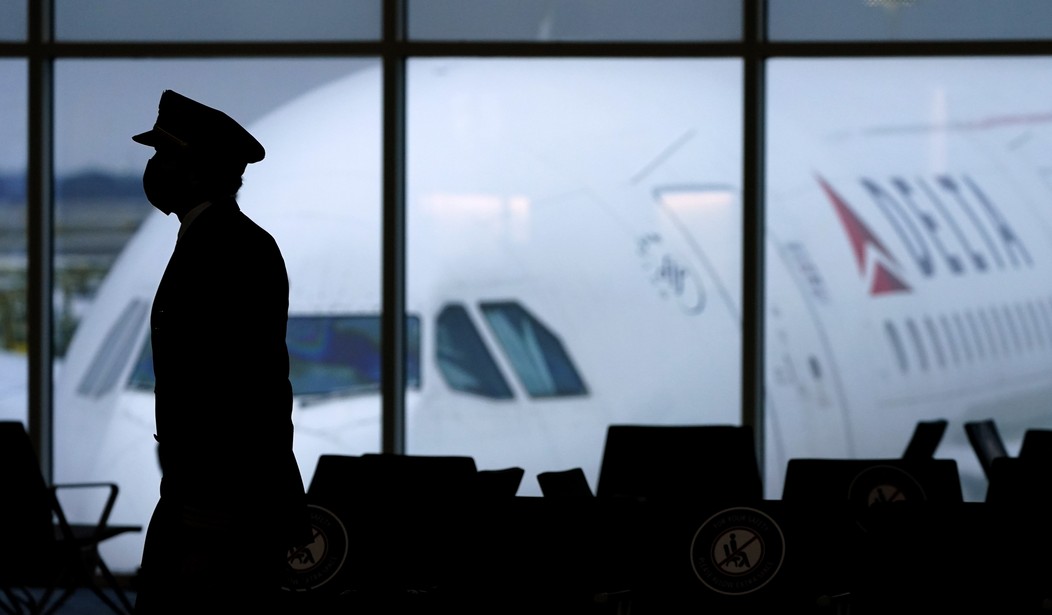If you’ve needed to book a flight anywhere this year, you may have encountered one or more unpleasant surprises. A rising number of flights have been canceled on short notice with few reasons offered for the cancellations. This has been particularly true for Alaska Airlines and United. But why? Are they running out of jet fuel? Well… not yet, though they may be by the middle of the summer. No, for the moment the real shortage the airlines are dealing with is a labor shortage, specifically for pilots. After reducing staffing during the pandemic, the airlines have been struggling to hire enough pilots to meet the demand now that travel patterns are returning to normal and surging during the summer months. So how do they plan to address this? Some are looking to lower the requirements for pilots to get their wings so they can put more of them up in the air faster. Don’t you feel more confident now? (Business Insider)
As the pilot shortage continues to rock the airline industry, carriers are struggling to fulfill their flight schedules, and some are even trying to reduce required training hours to get more pilots in the air.
On May 13, Alaska Airlines CEO Ben Minicucci apologized in a YouTube video for continued flight cancellations that have been plaguing the carrier. Minicucci blamed the pilot shortage, saying “we had 63 fewer pilots than what we planned for when we built our scheduled,” which caused a “ripple effect.”
“By the time we caught this error, April and May schedules were bid on by our pilots and flight attendants, making it impossible to sufficiently adjust schedules to avoid cancellations,” he continued.
It’s not just Alaska Airlines facing this problem, though it seems to be hitting them the hardest so far. American, Delta, and United have all cut some regional routes along with canceling flights between hubs on multiple occasions. United grounded more than 100 regional routes for the foreseeable future. United’s CEO is quoted as saying that he doesn’t believe they will be fully staffed with pilots “at least for the next five years.”
Hearing an airline talk about reducing the required qualifications might understandably make the flying public feel a bit squeamish. But what if the existing requirements were already overly rigorous? For example, almost all of the major carriers require their pilots to have a four-year college degree, but they don’t specify what their major had to be. Provided they’ve attended flight school and put in the mandatory number of flight hours as a student, is a pilot with a bachelor’s degree in English really any more qualified than one without such a degree? United will now consider candidates “who have gained more than the equivalent of a college education through years of life and leadership experience.”
And what about the flight hours requirement? Currently, all of the major carriers require candidates to have logged 1,500 hours of flight before being accepted. That’s a lot of hours for someone to rack up if they don’t have a job that involves flying. Some of the carriers are considering dropping that number to 1,000 or even 750 hours. Once they start flying for the commercial airlines regularly they’ll be up to 1,500 soon enough anyway.
Another possibility being explored is raising the mandatory retirement age for commercial pilots. The current retirement age is 65, but there is already a bill being considered in the Senate that would raise it to 67. That might not seem like much, but as the workforce continues to age, getting an extra two years out of most of the pilots would probably help. Then again, when I stop and think about the mental acuity of some older people currently holding influential positions, perhaps we shouldn’t rush into that idea too quickly.
In the end, nothing is going to address this problem unless the airlines can make the job of being a pilot more attractive to potential candidates. And even then, it’s going to take a long time to get a new generation of flyers fully trained and up to speed.








Join the conversation as a VIP Member